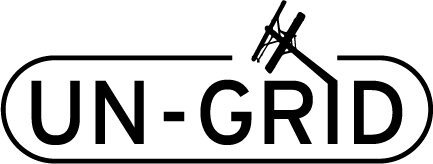New construction? Consider going off-grid
When it comes to investing in an off-grid system for a new construction project, there are several factors to consider, including the return on investment (ROI) compared to utility rates and their projected increase.
One of the main benefits of an off-grid system is that it allows homeowners and businesses to generate their own electricity, which can lead to significant cost savings over time. The upfront cost of installing an off-grid system can be high, but the ROI can be substantial, particularly if utility rates continue to increase.
Utility rates are projected to continue increasing over the next 15 years, driven by factors such as the cost of infrastructure upgrades, fuel costs, and regulatory compliance. In contrast, the cost of off-grid systems, such as solar panels and wind turbines, is expected to continue decreasing, driven by improvements in technology and economies of scale.
For example, let's say that the cost of installing an off-grid system for a new construction project is $50,000, and the annual energy savings from the system are $5,000. This would result in a payback period of 10 years. Over the life of the system, which is typically 25 years or more, the ROI could be substantial, particularly if utility rates continue to increase.
In contrast, if the same new construction project were connected to the grid and relied on utility rates, the ROI would depend on the cost of energy from the utility provider. If the cost of energy were to increase by 5% annually over the next 15 years, for example, the ROI would be much lower than with an off-grid system.
Of course, there are other factors to consider when comparing the ROI of an off-grid system to utility rates, including the cost of maintenance, the reliability of the system, and the availability of backup power. It is also important to consider the environmental benefits of an off-grid system, including reduced carbon emissions and increased energy independence.
Overall, when considering the ROI of an off-grid system in new construction versus utility rates and their projected increase, it is important to look at the long-term benefits and to consider all of the factors involved. While the upfront cost of an off-grid system can be high, the long-term cost savings and environmental benefits can make it a worthwhile investment.

